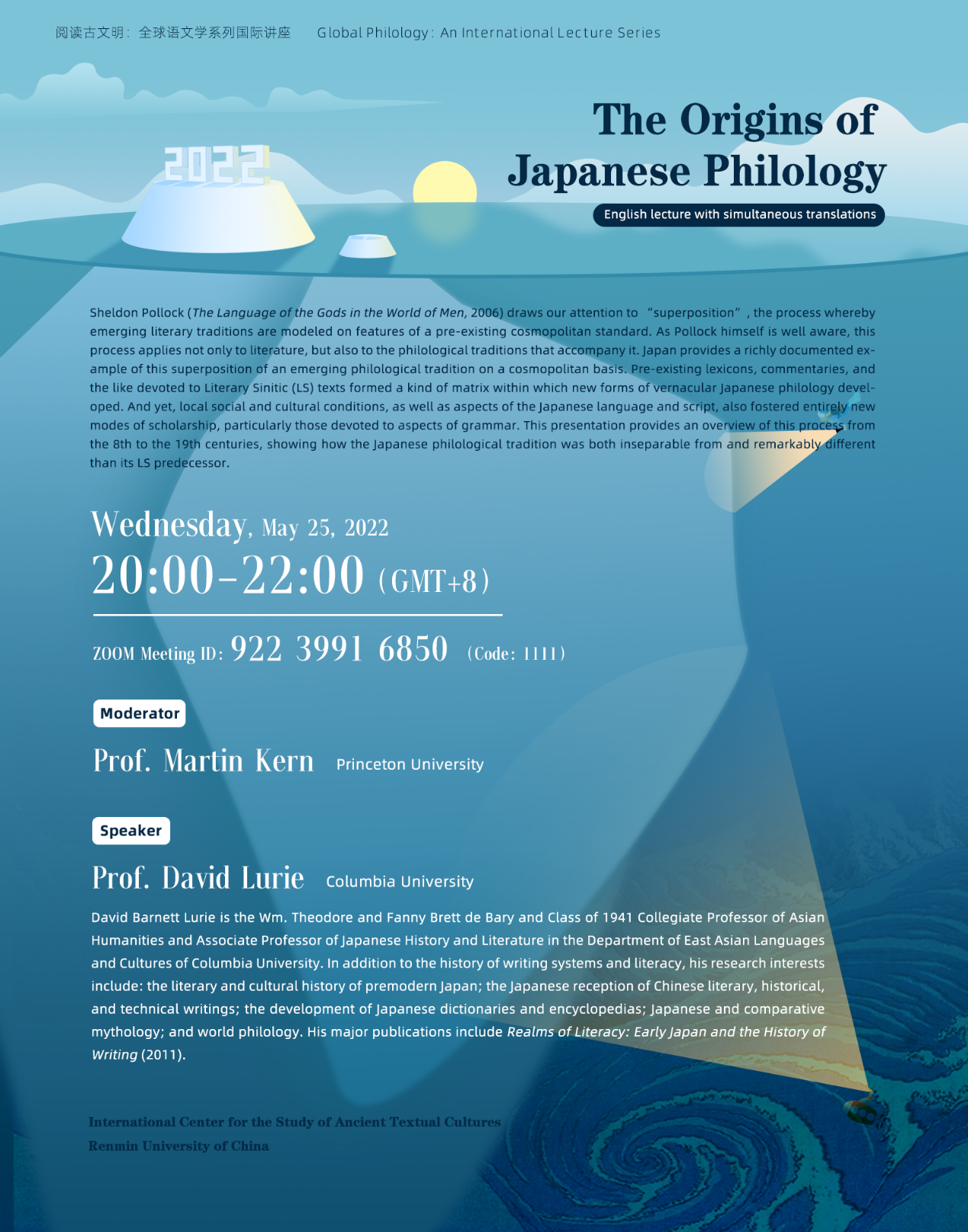[Upcoming]The Origins of Japanese Philology
发布时间:2022-05-21
Global Philology:An International Lecture Series
The Origins of Japanese Philology

Speaker : Prof. David Lurie
Columbia University
Moderator : Prof. Martin Kern
Princeton University
Time: 20:00-22:00 (GMT+8), May 25, 2022.
Zoom conference number: 922 3991 6850
Password: 1111
About the Speaker:
David Barnett Lurie is the Wm. Theodore and Fanny Brett de Bary and Class of 1941 Collegiate Professor of Asian Humanities and Associate Professor of Japanese History and Literature in the Department of East Asian Languages and Cultures of Columbia University. In addition to the history of writing systems and literacy, his research interests include: the literary and cultural history of premodern Japan; the Japanese reception of Chinese literary, historical, and technical writings; the development of Japanese dictionaries and encyclopedias; Japanese and comparative mythology; and world philology. His major publications include Realms of Literacy: Early Japan and the History of Writing(2011).
Lecture Introduction:
Sheldon Pollock (The Language of the Gods in the World of Men, 2006) draws our attention to “superposition”, the process whereby emerging literary traditions are modeled on features of a pre-existing cosmopolitan standard. As Pollock himself is well aware, this process applies not only to literature, but also to the philological traditions that accompany it. Japan provides a richly documented example of this superposition of an emerging philological tradition on a cosmopolitan basis. Pre-existing lexicons, commentaries, and the like devoted to Literary Sinitic (LS) texts formed a kind of matrix within which new forms of vernacular Japanese philology developed. And yet, local social and cultural conditions, as well as aspects of the Japanese language and script, also fostered entirely new modes of scholarship, particularly those devoted to aspects of grammar. This presentation provides an overview of this process from the 8th to the 19th centuries, showing how the Japanese philological tradition was both inseparable from and remarkably different than its LS predecessor.
English lecture with simultaneous translations.